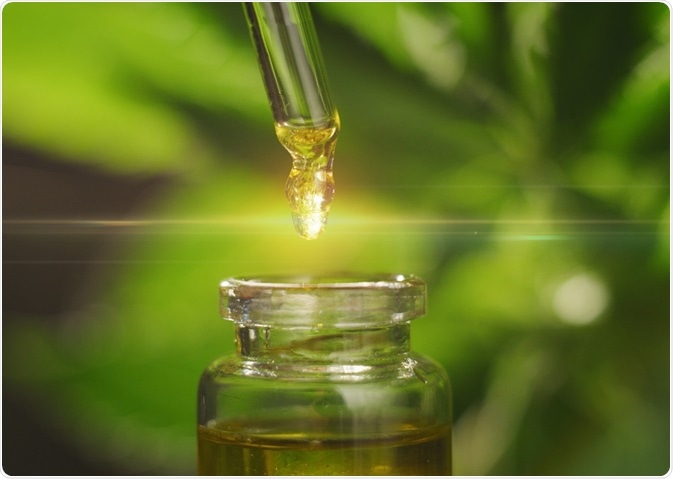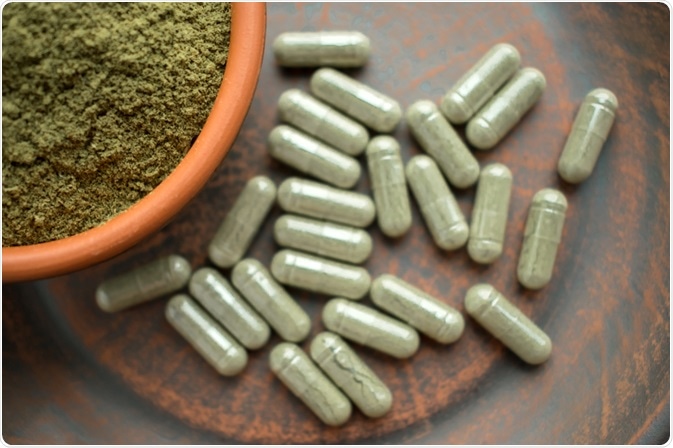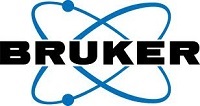Modified natural products make attractive drug candidates, but their synthesis can be difficult. In addition, screening candidate drugs for activity can be expensive and time-consuming. A group of European researchers has invented a new method to synthesize and screen modified natural products in an NMR-tube bioreactor.
 Image Credit: HQuality / Shutterstock.com
Image Credit: HQuality / Shutterstock.com
A vast range of structurally and functionally diverse molecules occur in nature. Natural products are ideal drug candidates as they are often able to interact with biological target molecules, and much of the complex chemistry required for their synthesis has already been completed by nature. 1
Many currently marketed drugs are either naturally occurring molecules or modified natural molecules. For example, estimates suggest that approximately 49% of cancer drugs come from natural sources.1,2
Small modifications to natural compounds can significantly increase their potency. However, these modifications often involve complex chemical synthesis procedures and the protection of a variety of functional groups. As a result, synthesizing new natural derivates and identifying which of them may be potential drug compounds is a timely and expensive process.3,4
Fortunately, enzymes can conduct a wide variety of modifications on substrate molecules without the need for functional group protection, providing high selectivity, specificity, and efficiency.
In addition, enzymatic processes are often very environmentally friendly, with minimal waste products and low energy consumption compared with traditional chemical procedures. Exploiting enzymes to make new molecules could revolutionize the drug discovery process.3,4
Identifying natural molecules that can be enzymatically transformed
Finding compatible substrates and enzymes that generate new molecules for drug discovery is challenging.
Recently, a team of researchers from Greece and Italy devised a way to screen natural compounds to find out if they can be modified enzymatically and if the resulting product has potential as a new drug molecule.4
Their method, which was described in the journal BBA – General Subjects, involved the use of a nuclear magnetic resonance (NMR) tube as a bioreactor in a three-step process. Firstly, they introduced a library of natural products and a transformative enzyme to an NMR tube.
Saturation Transfer Difference (STD) 1D NMR, a widely used technique for studying interactions between proteins and ligands, was performed to identify which natural products bind with the enzyme.
Other components required for the reaction were not added to the solution, preventing the reaction from proceeding and enabling the detection of an enzyme-substrate complex.
Once a potential substrate was identified, it was added to a fresh NMR-tube with the other reagents required for the enzymatic transformation and an immobilized enzyme. In-situ 2D 1H-13C HSQC NMR was used to monitor the reaction progress in real-time. They used immobilized enzymes during this step to avoid any interfering NMR signal from the proteins.
Finally, the target protein was introduced, and STD 1D NMR was used to determine if the naturally-derived product molecule interacted with the protein. All NMR experiments were conducted on an AVANCE NEO spectrometer (Bruker Biospin) equipped with a TXI cryoprobe.
 Image Credit: Iryna Imago / Shutterstock.com
Image Credit: Iryna Imago / Shutterstock.com
Testing the method with model compounds
In their study, the researchers investigated whether several flavonoids could bind with a versatile enzyme called Candida Antarctica lipase B (CALB), which catalyzes fat hydrolysis and acetylation.
Several potential substrates were identified. The team was then able to monitor the depletion of substrates and the synthesis of products in real-time during their in-situ NMR experiments.
The scientists then investigated whether their naturally-derived products interacted with bovine serum albumin, a model target protein. Their NMR spectra showed that several of their reaction products did bind with the protein.
Synthesizing drugs for neurodegenerative diseases in an NMR tube bioreactor
They then used the same methodology to find out if any of their naturally derived products interacted with alpha-synuclein, a protein of real pharmaceutical interest that has been linked to the development of Parkinson’s disease and other neurodegenerative diseases.
Alpha-synuclein is an intrinsically disordered protein, and its characteristic lack of structure has previously made it impossible to target specifically with drug molecules. However, the team was successfully able to produce a modified natural compound that bound with alpha-synuclein, marking it as a potentially attractive candidate for drug development.
NMR bioreactors could revolutionize drug discovery
Until now, modifying and screening natural products has been a complicated, expensive, and time-consuming part of the drug discovery pipeline. This new method using enzymes and an NMR bioreactor is simple, inexpensive, environmentally friendly, and quick compared to the chemical procedures traditionally used.
The increased speed and efficiency of this method could revolutionize the pharmaceutical research and development process. The technique could be applied to a range of other natural products, enzymatic transformations, and target proteins, to produce a myriad of new potential therapies. The authors also suggest that their method can be used to monitor drug metabolite synthesis in situ.
References
- ‘Natural products derived from plants as a source of drugs’ — Veeresham C, Journal of Advanced Pharmaceutical Technology & Research, 2012.
- ‘Natural products as sources of new drugs from 1981 to 2014’ — Newman DJ, Cragg GM, Journal of Natural Products, 2016.
- ‘The modification of natural products for medical use’ — Guo Z, Acta Pharmaceutica Sinica B, 2017.
- ‘Enriching the biological space of natural products and charting drug metabolites, through real-time biotransformation monitoring: The NMR tube bioreactor’ — Chatzikonstantinou AV, Chatziathanasiadou MV, Ravera E, Fragai M, Parigi G, Gerothanassis IP, Luchinat C, Stamatis H, Tzakosa AG, BBA – General Subjects, 2018.
About Bruker BioSpin - NMR, EPR and Imaging
 Bruker BioSpin offers the world's most comprehensive range of NMR and EPR spectroscopy and preclinical research tools. Bruker BioSpin develops, manufactures and supplies technology to research establishments, commercial enterprises and multi-national corporations across countless industries and fields of expertise.
Bruker BioSpin offers the world's most comprehensive range of NMR and EPR spectroscopy and preclinical research tools. Bruker BioSpin develops, manufactures and supplies technology to research establishments, commercial enterprises and multi-national corporations across countless industries and fields of expertise.